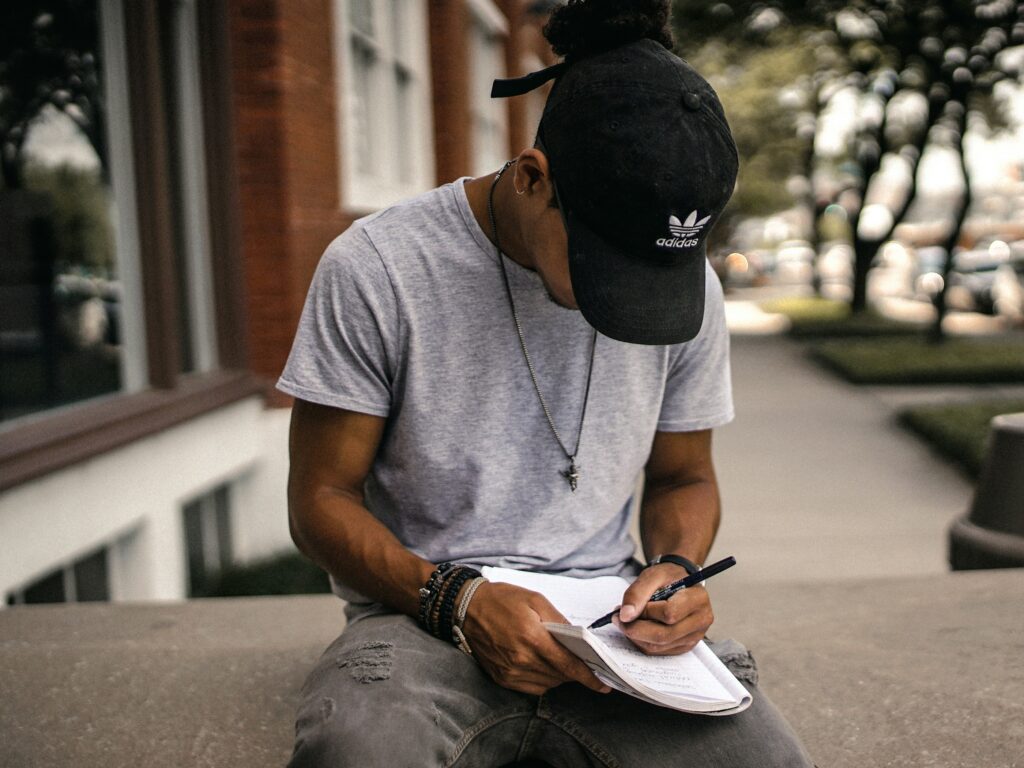It’s February 2023. ChatGPT has just become the fastest-growing consumer software application in history, and Clarkesworld Magazine, a leading publisher of original short fiction, shuts down for the first time. Why? Spam. So much spam that the human voice became nothing more than a whisper in a synthetic gale of AI-generated content.
But the gates reopened after just a few weeks and Neil Clarke, its editor, won a Hugo Award the same year. We continue to enjoy a wealth of new writing while AI wails like an upset toddler, producing much more noise than everyone else, but getting less attention.
Markets for first publication rights to short fiction, poetry, and non-fiction bustle with over a hundred pro-paying (0.08c per word) magazines opening their submission windows throughout the year. However, an editor’s job now doubles with robopsychologist as they decipher which authors are real and which are used for unearned profit.
The first question to ask when performing a Voight-Kampff test on a black and white page is whether ChatGPT and other forms of AI can actually write well. It’s an unfortunate yes, and not just well – better than most humans. Join an adult creative writing group and in most cases, the best writers there will be in its own members’ coat pockets.
AI understands and conforms robotically to the rules of story structure. This alone produces a more enjoyable read than a great deal of amateur fiction. First readers are exhausted by narratives with no stakes, and seeing events connected by “ands” rather than “so’s”. There is also a frequent issue with pacing. It takes a human author a long process of repetition to grasp when and where to hit certain narrative beats.
However, while the likes of ChatGPT may write smoothly, with twists in the right places and a clear sense of beginning, middle, and end, it doesn’t cringe at cliché. It doesn’t know how to invert expectations, because it relies on conforming to them. Generated stories are underdeveloped, rushing towards an end. They are unable to grasp nuance or imply, telling every story with the same winking tone that leaves a reader feeling patronised.

Compare the last lines of Herman Melville’s Moby Dick with the rewritten version I used ChatGPT to generate as research for this article: “It was the devious-cruising Rachel, that in her retracing search after her missing children, only found another orphan.” is transfigured by a smug algorithm into “Captain Ahab got his revenge. Or became part of it.”
Overall, however, the literary merit of AI in its current stage is comparable to that of your average creative writing undergraduate. Apply a university mark scheme to ChatGPT and it shows up roughly in the middle of the class. Editors have therefore taken a strong stance against AI (perhaps to preserve humanity, or perhaps out of a subconscious fear of being usurped themselves) and consider its use to constitute plagiarism.
As part of the masthead for Utopia Science Fiction Magazine, I have been part of several discussions about spotting AI submissions. AI detectors have so far proven ineffective at diagnosing content as artificially generated – it still requires a human to see through words into the mind (or lack of one) behind them. As time moved on, one of our fiction editors observed there was actually no need to focus on spotting AI – merely focusing on quality was enough. As a pro-paying market, we never have a shortage of submissions, and AI just doesn’t have what it takes to escape the slush pile.
Masses of generated content aren’t really a threat to writers who are used to having their work consistently chosen over fierce competition. (Sturgeon’s ratio of 90% bad art to 10% good might now be amended to 99:1). Few creative writing students ever go on to have a paid publication, and AI has the same trouble. It doesn’t take long to tell if a story or poem has potential, so an editor is merely tasked with sending more rejections.
There has only been one instance of plagiarised content escaping the nets of Utopia Science Fiction Magazine, and that came about through traditional plagiarism. A serial offender with other publishers, using the same pseudonym as if to mock the trust of diligent editors, sliced extracts from longer poems which were only available to read in print, and passed them off as their own. It took a human masquerading as another human, rather than a machine imitating one.
If there is any real threat posed by AI to literature, it’s psychological. I discussed this during an interview with award-winning artist, John Picacio (his work has appeared as cover art for several Michael Moorcock books). He describes AI as “a potentially fatal thing for civilisation.” This isn’t because he feels threatened as an established creative, but for fear of diminished human connection and a devaluation what constitutes good.
When I graduated with an MSc in Creative Writing from the University of Edinburgh, I still wasn’t at a stage where I could write confidently. It took years of reading and practice before serial rejection letters became acceptances. I wonder if I would have had the motivation to learn if, as a teenager, I could animate my ideas by describing them to a chatbot.

The fight against AI is, however, being won. There will always be an audience for good writing, if publishers continue to seek and pay for it. The conflict is therefore swayed by the consumer. If the market for new literature diminishes, there will be less incentive for writers to learn, or editors to provide feedback and clarify success with publication.
Britain’s longest-running science fiction magazine, Interzone, recently dropped its pay rates and ceased print publication, presumably due to lack of funds. The threat to literature isn’t AI, but in the struggle to nourish art at its roots. My fear is that while people may continue to enjoy the classics, there will be fewer new books on the shelves. Or worse, the books that sell will come from authors with the biggest profiles or who invest the most into advertising.
The industry for new writing is changing. Social media and donation platforms have become integral to launching careers. Writers don’t just sell their work, but also themselves through community engagement. AI’s lack of personality means it doesn’t come with expectations, and part of the pleasure of reading N.K. Jemisin, for example, is knowing you’re in for a rollercoaster of emotional intensity and social commentary. It can, however, be used by an author to generate social media posts, or even describe their own work without threatening the creative process itself.
Afterall, George Orwell’s first rule of writing was to “Never use a metaphor, simile, or other figure of speech which you are used to seeing in print.” AI borrows from the treasury of existing literature and therefore can’t help feeling familiar. Oscar Wilde’s The Picture of Dorian Gray would not have made the same impact if it was published today, nor would James Joyce’s Ulysses or Allen Ginsberg’s “Howl.” Presuming AI continues to develop, it still can’t keep up with constant innovations in style and subject matter. T.S. Eliot’s aphorism that “Good poets borrow, great poets steal” could now, more than ever, do with the addition of “average poets regurgitate.”



